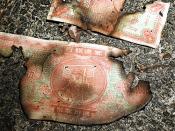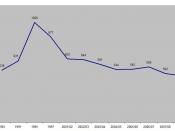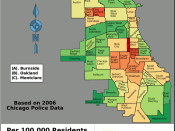This assignment will outline why recorded crime may not be an accurate reflection of the actual crimes that take place. By using course materials it will discus the doubts raised about statistical evidence of crime.
In Great Britain there are many crimes committed and when a crime is reported to the police it is then documented. Quantitive evidence shows that since 1930 there has been a large increase in crimes committed. Maguire (1997) suggests that the reason for the significant rise in the crime rate may be because of the change in society. Maguire (1979) states that having more police officers and modern technology such as CCTV cameras may have an effect on the rise, also the ease of insurance company payouts in the event of crime can persuade people to report the crime.
Evidence also suggests that new crimes are being invented because of modern technology such as internet crime, credit card fraud and mobile phone theft.
In early 1800, recorded crime rates were low, and as modern technology has evolved so too have the crime rates and this can be illustrated by the types of crimes which have risen. The main crime to have risen a great deal between 1981 and 2000 is theft and handling stolen property, with criminal damage coming a close second (Social Trends 2002).
Some professionals however, doubt the statistical evidence because there is an indication that certain types of crimes are not reported to the police, therefore, the crime can not be documented.
Qualitive evidence provided by the British Crime Survey (1998) shows percentages of people who have not reported crimes for different reasons, such as people feeling that they would be wasting police time, victims have dealt with the crime themselves and people being worried about repercussion if they were to report...


